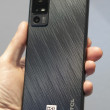Techs & Trends
Digital vs Tri-mode phones?
Analog mode sounds worse, uses more battery life, emits more radiation, and doesn't support any advanced features like text messaging, data, etc.
For those reasons, your phone will always use digital mode whenever it can. And in most reasonably populated areas, digital will provide you with adequate coverage, so there will be no difference.
But as you get more rural, there are still areas where there are analog-only towers and no digital coverage. That's when a tri-mode phone will switch to analog mode, whereas an all-digital phone would not get signal at all.
It really depends on the areas you use your phone. If you need coverage in the middle of nowhere, you'll want the tri-mode phone. If...
(continues)
A tri-mode phone uses both the cellular frquencies AND the Analog portion as its full spectrum. On both TDMA and CDMA. So a TDMA Tri-mode will work on 800Mhz,1900Mhz and Ana...
(continues)
I'm an IT professional and followed everything you provided about the CDMA/TDMA signaling differences and the frequency information. I hope you may be able to clarify something that a store technician told me that goes against the grain.
Based on the information you provided, a phone that has say LTE 750, WCDMA 850/900/1900/2100, CDMA 850/1900, and GSM 850/900/1800/1900 capabilities: if it leaves the contracted carriers tower footprint and roams into another carriers footprint that has one of the technologies/frequencies that the phone is capable of communicating on, will it be able to use the other carriers technology/frequency to establish a call? (I understand that there may be additional roaming charges, but will...
(continues)
Analog will be with us for some time. The FCC mandate is 2/17/2008, which may be extended yet again. But many carriers in the west get thousands in revenue from analog roamers, so they are not in any hurry to cut this off. Also, OnStar uses analog in all cars until the mid-2004 model year.
The "push" to all-digital phones is led by manufacturers who are trying to pack all these hot new features into ever smaller phones, and feel like analog could be dropped out, and carriers want to keep customers happy by offering these feature-packed phones. But that does not mean analog towers will be going away even if the FCC no longer requires it...
(continues)



